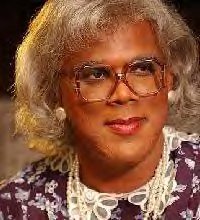
Though I still enjoy watching the Oscars, especially the part where they show the honor roll of dead people who get varying levels of audience response (very, very funny to me), the best thing about then nowadays is what they drive to DVD.
This week we get two nominated films, "Pride & Prejudice" and "Walk the Line," which I enjoyed immensely. Here are brief synopses of my earlier reviews.
Pride & Prejudice
As I was discussing this new version of Jane Austen's best novel with some friends, we wondered how the story that had been told so well in A&E's celebrated five-hour miniseries could be condensed to a little more than two hours. "Did they just talk really fast?," one smartalec asked.
Well, in a way, yes. Director Joe Wright keeps the action brisk and screenwriter Deborah Moggach keep the barbs sharp. They understand that although "Pride & Prejudice" is an epic love story, it is even more a comedy of manners, or more often the lack thereof.
The reason Austen is so tempting an author for filmmakers is her books are above all else about class envy and its ills, which have only intensified over time. To pull off her vision, you need two perfect foils, the apparent snob and the latent snob, Mr. Darcy and Elizabeth Bennet.
Luckily we get Keira Knightley and the until-now unknown (at least to me) Matthew MacFadyen.
I've adored Knightley ever since the delightful popcorn nugget "Bend It Like Beckham," and here she has a role that actually requires some acting. She knows that, though a wise-cracking, impetuous young woman on the outside, Elizabeth is the most vulnerable character in "Pride & Prejudice," and she conveys this with her eyes as much as her voice. Though you probably won't hear her name on Oscar night as Best Actress, you should. She's that good.
A co-worker said she found Knightley's bad wig to be a distraction, but that was her biggest beef about the movie, so she liked it almost as much as I did.
As Mr. Darcy, MacFadyen is nearly perfect, as snotty and insolent as he can be. I can only think of one big-screen Austen hero I've liked more, Ciaran Hinds as Captain Frederick Wentworth in 1995's "Persuasion." Check it out.
In smaller roles, Donald Sutherland works well as the pater familias of the Bennet clan, though his charm tends to make you overlook Mr. Bennet's many faults, and Dame Judi Dench shows up about halfway in as a perfectly brusque Lady Catherine de Bourg.
But the real star here is Wright, who as far as I can tell had never directed anything beyond TV miniseries before this. His large ensemble scenes, in particular the balls, have a kinetic energy that make them hard to keep up with but well worth the effort.
Walk the Line
Warden: Mr. Cash, try to refrain from performing any tunes that remind the inmates that they're in prison.
Johnny Cash: You think they forgot?
As the opening credits of "Walk the Line" rolled to a crescendo of stomping feet in Folsom Prison, I couldn't help but be worried.
What would Hollywood do with the story of Johnny Cash, a man who spent most of his professional life flipping off anything that could be called the establishment?
What I quickly learned, however, was that it is me who is woefully ignorant about the life of the late man in black.
Several years back at one of our annual old book sales I picked up the holy trinity of books about Cash, by Cash: "Cash," "The Man in Black" and "The Man in White." Had I bothered to read the first two volumes, I would have learned that the story of Johnny and June Carter Cash is one of yearning love that burns even brighter on screen in "Walk the Line."
Though it manages a large ensemble cast with ease, all the characters except Joaquin Phoenix's Johnny and Reese Witherspoon's June are wisely kept in the background. When those actors are playing Elvis Presley, Roy Orbison and, most memorably, Waylon Payne as a delightfully wicked Jerry Lee Lewis, that's no small feat.
On paper it would seem to be monotonous as Johnny asks for June's hand and is rebuked again and again, but the sparks between these two are so hot it rarely gets boring on screen.
Like Jamie Foxx as Ray Charles before him, Phoenix invokes the spirit of Johnny Cash with almost chilling precision. From the smallest detail, down to the almost-cleft upper lip, he is the young Johnny Cash. And in early scenes from "Walk the Line," when he's on tour with his Sun Records mates, his singing and stage presence are pitch perfect.
He gets upstaged, however, by a shockingly good Reese Witherspoon. Until now I thought her range only went from cute to really cute, but again, I was wrong. Her skill in playing June Carter from the precocious young talent who was overshadowed by the other members of the Carter clan to the savior who would rescue Cash from his worst demons is fun to watch.
Though she's pretty much an Oscar lock, and a pretty worthy one, Keira Knightley is clearly more deserving. For a dissenting view on Witherspoon's performance, read this from Washington Post critic Ann Hornaday.
I've been railing for years, mostly at work to anyone who has the misfortune of sitting near me, about Hollywood's inability to cast Southerners to play Southerners. They let Nicole Kidman murder one of my favorite books, "Cold Mountain." Perhaps after this tremendous star turn from Nashvillean Witherspoon, who threatened to abandon the project if it weren't shot in and around Memphis, someone will get the message.

